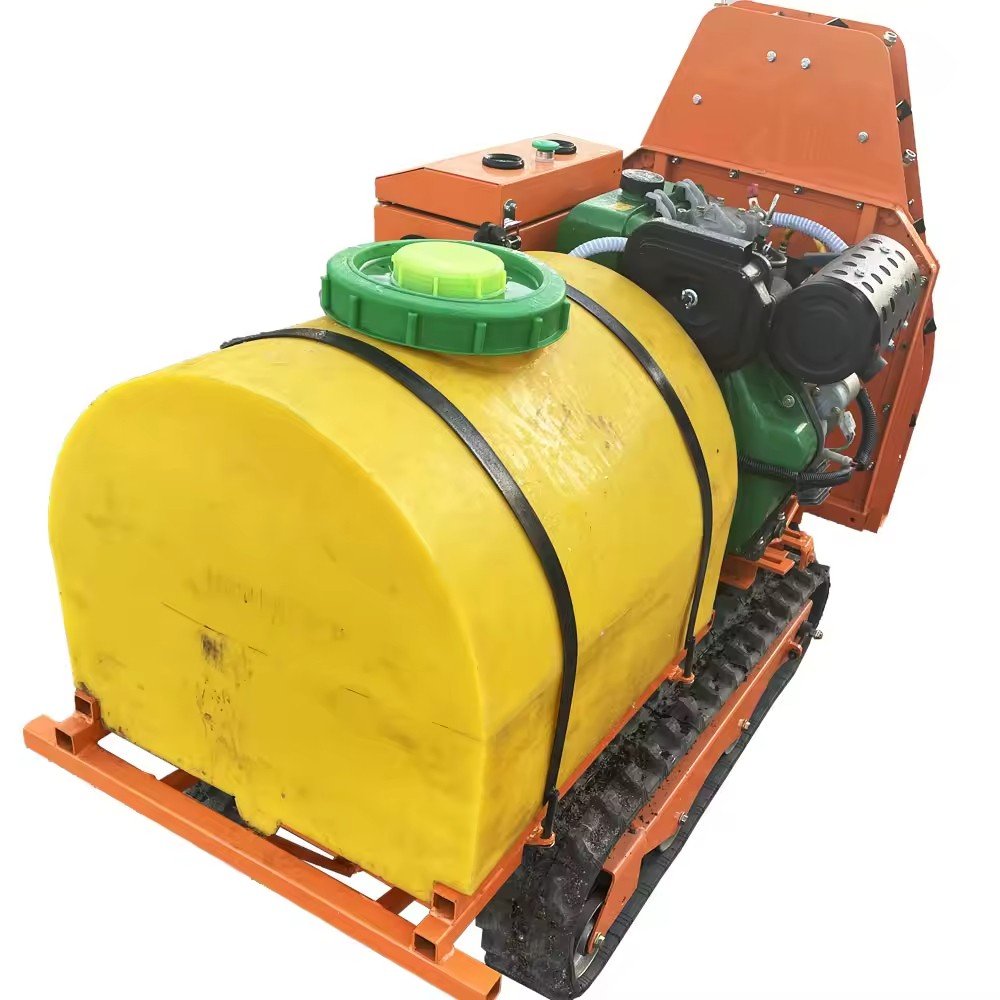

In the fast-paced development of modern agriculture, the introduction of technology has brought revolutionary changes to traditional farming practices. Remote-controlled sprayers, as an innovative agricultural machinery product, are playing an increasingly important role in orchard management. The widespread adoption of these devices has not only significantly enhanced the efficiency of orchard management but also provided farmers with a safer and more environmentally friendly work environment, advancing the process of intelligent agriculture.
Advantages of Remote-Controlled Sprayers: Precise Application and High Efficiency
Traditional orchard spraying methods often require manual operation, which is time-consuming and labor-intensive, and can lead to uneven distribution of pesticides due to human factors, affecting pest control effectiveness. Particularly in large orchards, conventional spraying equipment often falls short of meeting the need for efficient pesticide application. However, remote-controlled sprayers, with their precise control and wide coverage capabilities, have completely transformed this situation.
These devices are equipped with high-precision spraying systems that can flexibly adjust the spray angle and pesticide dosage based on the height, density, and pest conditions of the trees, ensuring that pesticides are evenly distributed on every leaf, thereby significantly improving pest control efficiency. At the same time, remote-controlled sprayers have extensive coverage, allowing operators to easily control the equipment from a fixed position in the field using a remote control, completing pesticide application tasks across large orchard areas. This high efficiency not only reduces the amount of pesticide used but also greatly shortens operation time, enhancing overall orchard management efficiency.
Enhancing Safety: Keeping Pesticides at a Distance
Traditional manual spraying methods require workers to be in close proximity to pesticides, which can pose serious health risks over time. The advent of remote-controlled sprayers offers farmers a safer alternative. By enabling remote operation, farmers no longer need to enter the orchard itself and can control the equipment from a safe distance, avoiding direct exposure to harmful chemicals.
Additionally, remote-controlled sprayers are typically equipped with intelligent safety systems, such as automatic obstacle avoidance and emergency stop functions, further enhancing operational safety. Even in complex terrains or adverse weather conditions, the equipment can operate stably, ensuring the smooth completion of tasks. This design greatly reduces the labor intensity and potential risks for farmers, making agricultural production more secure and reliable.
Environmentally Friendly and Sustainable: Reducing Environmental Impact
With increasing awareness of environmental protection, there are higher demands for sustainability in agricultural production. The promotion and use of remote-controlled sprayers effectively reduce the overuse of pesticides, lowering pollution to soil and water sources, aligning with the principles of sustainable development in modern agriculture.
These devices utilize precision spraying technology, minimizing waste and preventing chemical residues in the environment. In traditional spraying methods, excessive application often leads to pesticides seeping into the soil and water, harming the ecosystem. Remote-controlled sprayers, with their intelligent spraying systems, scientifically allocate pesticide amounts based on actual crop needs, ensuring effective pest control while significantly reducing the environmental footprint.
Moreover, remote-controlled sprayers have low energy consumption, with most devices powered by electricity or solar energy, making them more environmentally friendly compared to traditional fuel-powered equipment. As the concept of green agriculture gains traction, remote-controlled sprayers are becoming a preferred choice for farmers seeking eco-friendly agricultural machinery.
Conclusion: A Promising Force in the Future of Smart Agriculture
The emergence of remote-controlled sprayers has undeniably brought numerous advantages to modern agriculture, particularly in orchard management. Their efficiency, precision, safety, and environmental benefits enable farmers to better tackle various challenges, improving the quality and yield of fruit while promoting the modernization and sustainable development of agricultural production.
Looking ahead, as technology continues to advance, remote-controlled sprayers are expected to be widely adopted in more agricultural fields, becoming a key force in driving the intelligent and digital transformation of agriculture. Farmers will be able to manage crops more conveniently, reduce labor intensity, and increase economic benefits, thereby achieving a comprehensive upgrade in agricultural production.